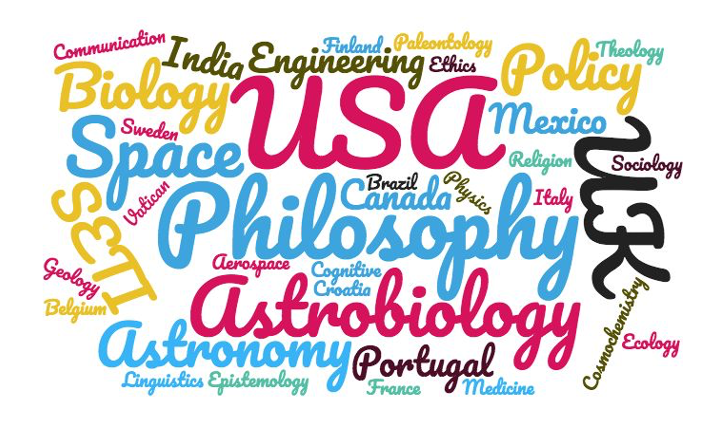
Life in space colonies: can ecocentrism help?
Loading...
Start Date
16-12-2020 9:00 AM
End Date
16-12-2020 9:20 AM
Description
The Bladerunner year is upon us in 2019, and we do not have off-earth colonies yet. However, there is no reason that we would never have such settlements out there. It is highly probable that in a few decades from now, human settlements would there be outside the earth. If we are able to establish human habitations beyond the earth, would these continue as secluded 'anthropospheres' or as miniature biospheres? If it is the former, such 'monospecific' habitats (except perhaps the individual microbiomes that the settlers would carry) will be neither self-sustaining nor psychologically satisfying to the settlers. Besides having plants as a source of oxygen and food, that is having them there for their 'use value', can the pioneer space settlers have plants as their 'companions', to derive psychological support from them? Our ecocentric tradiitions could help us in striking a 'dialogue' with the plants. If we go through the world literature, poets like Walt Whitman, Emerson, Thoreau and several others in the west, and many oriental poets like Rabindranath Tagore of India, have unearthed the 'soul' of the plants and found support and solace there. Could an ecocentric orientation of the space settlers and even the astronauts who would spend a long time in space, help in making them better equipped psychologically to live in a very different environment? Intensive sessions of 'green reading' and appreciation could perhaps be helpful. Taking animal pets into space is more debatable. It is doubtful that we have the moral right to do so if we apply the 'sentience' approach and the 'rights' approach in transporting and translocating animals, especially higher animals into space. If we agree on the sentience approach, we could perhaps have invertebrate pets such as the praying mantis or others become the non-human companions to light up the life of the settlers. Again, here too, we need cultural adjustments to derive the same pleasure from these more unusual pets as we get from their vertebrate counterparts. In any case, our inherent 'biophilia' could be explored to make life in space more stable and enjoyable.
Recommended Citation
Gupta, Abhik, "Life in space colonies: can ecocentrism help?" (2020). Society for Social and Conceptual Issues in Astrobiology (SSoCIA) Conference. 23.
https://egrove.olemiss.edu/ssocia/2020/schedule/23
Life in space colonies: can ecocentrism help?
The Bladerunner year is upon us in 2019, and we do not have off-earth colonies yet. However, there is no reason that we would never have such settlements out there. It is highly probable that in a few decades from now, human settlements would there be outside the earth. If we are able to establish human habitations beyond the earth, would these continue as secluded 'anthropospheres' or as miniature biospheres? If it is the former, such 'monospecific' habitats (except perhaps the individual microbiomes that the settlers would carry) will be neither self-sustaining nor psychologically satisfying to the settlers. Besides having plants as a source of oxygen and food, that is having them there for their 'use value', can the pioneer space settlers have plants as their 'companions', to derive psychological support from them? Our ecocentric tradiitions could help us in striking a 'dialogue' with the plants. If we go through the world literature, poets like Walt Whitman, Emerson, Thoreau and several others in the west, and many oriental poets like Rabindranath Tagore of India, have unearthed the 'soul' of the plants and found support and solace there. Could an ecocentric orientation of the space settlers and even the astronauts who would spend a long time in space, help in making them better equipped psychologically to live in a very different environment? Intensive sessions of 'green reading' and appreciation could perhaps be helpful. Taking animal pets into space is more debatable. It is doubtful that we have the moral right to do so if we apply the 'sentience' approach and the 'rights' approach in transporting and translocating animals, especially higher animals into space. If we agree on the sentience approach, we could perhaps have invertebrate pets such as the praying mantis or others become the non-human companions to light up the life of the settlers. Again, here too, we need cultural adjustments to derive the same pleasure from these more unusual pets as we get from their vertebrate counterparts. In any case, our inherent 'biophilia' could be explored to make life in space more stable and enjoyable.

